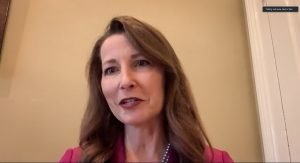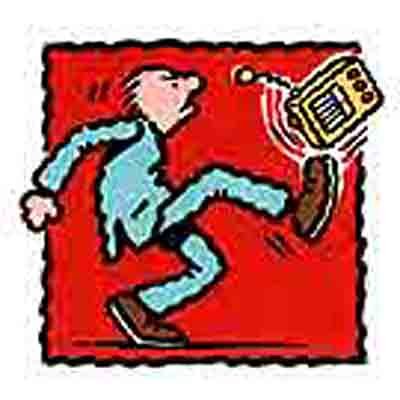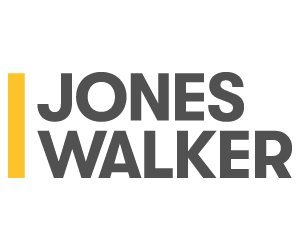From the US perspective, there are two predictable economic pillars we have always relied on: Oil and The Fed. We look at the price and supply of oil to calibrate our economic position in the global economy, and we rely on The Fed to insure our economic security. In the past 2 months we have had the pillar of oil completely yanked away from the foundation of our financial institution. Is another pillar, even more central to the US economy, The Fed really immutable? Starkly, is Doomsday possible?
The Fed
Whenever we get into any kind of real serious financial trouble – like the recession in 2008, or the economic slow-down we’re in now – we’re confident that the world is not coming to an end. The reason we’re so certain that the financial system is not going to crash, is because we believe The Fed is not going to let it.
The Federal Reserve is the central bank of the United States. It’s actually a series of 12 Federal Reserve banks. Here in Louisiana we’re in the Federal Reserve’s 6th District, anchored by the Federal Reserve Bank of Atlanta.

Vice President & Regional Executive of the Federal Reserve Bank of Atlanta, Adrienne Slack
The Vice President & Regional Executive of the Federal Reserve Bank of Atlanta is Adrienne Slack. In this conversation Peter Ricchiuti takes Adrienne back to a statement by the Chairman of the Fed, Jerome Powell, on April 9th. Powell said, “The Fed will provide up to $2.3 trillion in loans to support the economy. This funding will assist households and employers of all sizes, and bolster the ability of state and local governments to deliver critical services during the coronavirus pandemic.”
In other words, on April 9th The Fed gave the United States $2.3 trillion. The Fed is not actually printing money, but on April 9th it did in fact create $2.3 trillion that didn’t exist on April 8th. Adrienne explains how this works, and discusses the bigger question: could gthere be a day when it stops working?
Oil
Nothing sums up the strange and unprecedented economic times we’re living in more than a simple, three-letter word: Oil.
Maybe there’s a fiction writer somewhere who imagined the day oil became a worthless commodity that you had to pay someone to haul away, like garbage. But it’s doubtful there is an economist on earth who saw that day coming. Or even the days we’re living in now, where we’re discussing what’s called “$20 oil.” That is, oil that sells for $20 a barrel.
What does it cost to produce a barrel of oil? In Louisiana the common wisdom has always been, around $60. Over the last couple of years though, the oil field seems to have been staying alive with prices of around $35 a barrel. Is $20 oil finally going to kill off the energy business in Louisiana? Keep in mind that the reason this matters is, the energy industry in Louisiana employs over a quarter of a million people. And it pays over $2billion in annual state taxes. So whatever happens to the oil business in Louisiana affects all of us.
One good thing about a business that is continually in a cycle of boom or bust, is predictability. A bust is always followed at some point by a boom. Or it has been. This time, though, it looks like we’re going to need a more robust survival strategy than “Wait for better times to come around.” Do we have that strategy?
Gifford Briggs is the lucky person who gets to answer that question. Gifford is President of the Louisiana Oil and Gas Association.
Crisis Leadership
No matter which part of Louisiana you live in, you’ve survived disasters. From catastrophic downturns in the oil business, to biblical floods, and storms. One of the most cataclysmic of these in our lifetime was Hurricane Katrina. New Orleans was brought to its knees in a way that, till it happened, had only existed as a theoretical “worst case scenario.”
Beyond the threat to life itself, hardship like that – and the crisis we’re going through now – creates enormous suffering. It also creates heroes. After Katrina, one of those New Orleans heroes was Blake Haney.

Thought Leader – Dirty Coast’s Blake Haney
Blake is the owner of a business called Dirty Coast. Dirty Coast makes hip T-shirts with a New Orleans flavor. After Katrina, they also made a sticker. The sticker said, “Be A New Orleanian wherever you are.” Dirty Coast was then a small store. But demand was so great for those stickers that Blake gave away around one million of them. That slogan united a far-flung diaspora of New Orleanians and captured the resilience that directly led to the rebuilding of New Orleans.
Today, Dirty Coast has 4 outlets and a significant e-commerce component. Blake Haney still runs the company. He’s also the co-founder of locally.com, a nationwide e-commerce site that drives consumers to brick and mortar stores, and Bayou Brands, an e-commerce and product development consultancy.
There are very few thought-leaders who have actually been on the front-line of rebuilding a shattered economy. Blake is one of them. Can the lessons he learned last time be applied now to rebuild the local, state and national economy?
Photos by Jill Lafleur. More examination of the current Louisiana economy is here.


